
On December 3rd 2020, The Uganda Forum for Agricultural Advisory Services (UFAAS) in collaboration with African Forum for Agricultural services (AFAAS) held the Uganda National Stakeholders dialogue on Climate Smart Agriculture. The event took place at hotel Africana in Kampala, and online.
The purpose of the dialogue was to deliberate on current capacities of extension to deliver effective climate-smart agriculture interventions so as to inform both policy and practice with regard to building resilient agri-food systems in Uganda in pursuit of National Development Goals; brainstorm on formation of a steering committee, and map CSA initiatives.
The event proved especially relevant at the wake of the climate change challenges which threaten resilience of agri-food systems in Uganda and beyond. It feeds into the continental agenda on the implementation of climate smart agriculture strategies across Africa through partnerships, research and policy formulations, knowledge sharing, to build resilience, and improve farmers’ livelihoods.
The dialogue attracted over 50 stakeholders ( 41physically, 13 online) from various actors including: Ministry of Agriculture, Animal Industry and Fisheries; Private agribusiness companies, Uganda Farmers Federation, UN FAO Uganda office, Ministry of Water and Environment, Uganda Meteorological Authority, Universities, NGOs in related work, National Research Organization among others.
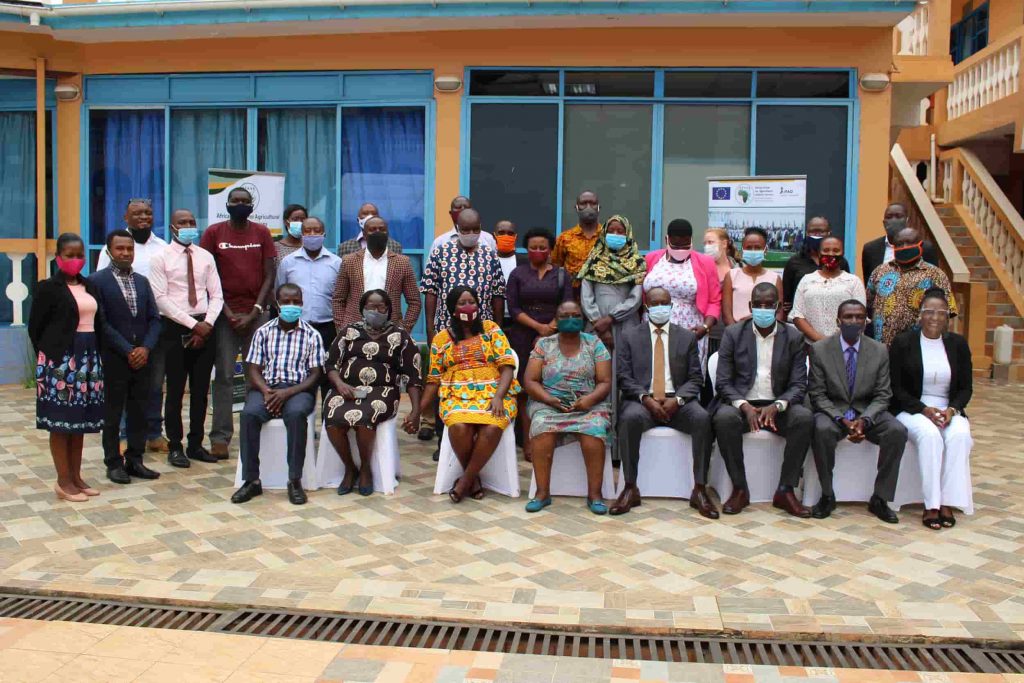
Opening remarks
UFAAS CEO Mrs Beatrice Luzobe shared about UFAAS, activities, and the relevance of the dialogue. “ This dialogue will create an information and knowledge forum for continuous engagement of AEAS actors and to strengthen their capacities to participate and contribute to the implementation of CSA activities” Mrs Luzobe remarked.
AFAAS was represented by Mr Max Olupot, the Partnerships, Planning and Learning Officer. In his presentation, Max shared in detail the structure of AFAAS, and its alignment to the continental and global agricultural extension and research ecosystem. He also presented about the CAADPXP4 project framework and outputs, and the relevance of the dialogue.
According to Mr Olupot, AFAAS and partners-ASARECA FARA, CCARDESSA, CORAF received funding from the European Union through IFAD under the Development Smart Innovation through Research in Agriculture (DeSIRA) initiative to implement a 4-year project in Africa.
He added that the theory of change of the CAADPXP4 project is anchored in the Malabo High level indicators, specifically the indicator on Increased productivity and resilience; and that the policy dialogue is anchored in ensuring improved agricultural productivity and resilience of farmers, and agri- food systems.
“…this dialogue is supposed to trickle and inform the African Union, ACP and other actors in the region including AUDA-NEPAD which is the coordinating unit of the AU in agriculture. They can be able to pick the policies to support people and not bar people from getting the services” Mr Olupot said
He urged each of the stakeholders to play their part in CSA to improve the livelihoods of the small holder farmers.
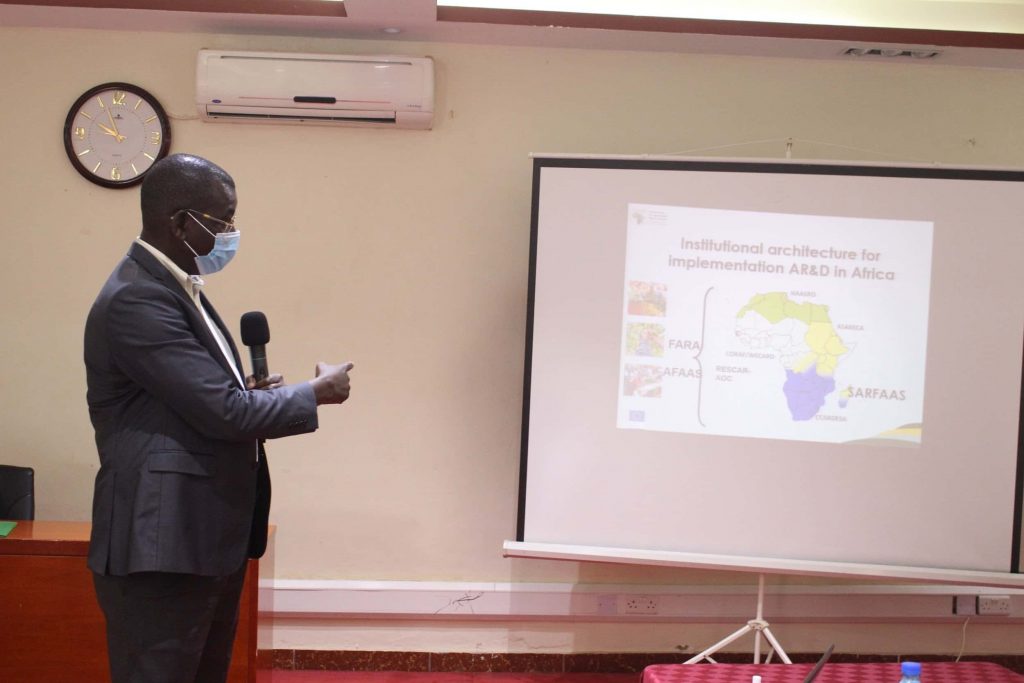
The dialogue was officially opened by Dr Nakelet Henry Opolot, the Commissioner, Agricultural Extension Skills Management at MAAIF. He encouraged extension workers to always include farmers in all planning processes to ensure smooth uptake of CSA technologies.
Presentation and group discussions:
The CSA Technical Working Group Leaders Mr Choice Agaba and Titus Kisauzi presented results from a study on AEAS CSA capacities (Status, Gaps and Recommendations), including an overview of policies related to CSA and the level of engagement. Thi led to question guided group discussions on policy, opportunities for establishing a steering body, and recommendations.
All participants were in agreement that climate change action is more than a need but expressed concern over organisations that talk without acting. Some participants also pointed out the lack of climate change awareness activities within their areas which translates in high numbers of climate illiterates. A series of recommendations were made with a strong commitment to turning theory into practice, and improving advocacy, and some stakeholders committed to working together on CSA activities. In addition, climate smart agriculture initiatives were documented.
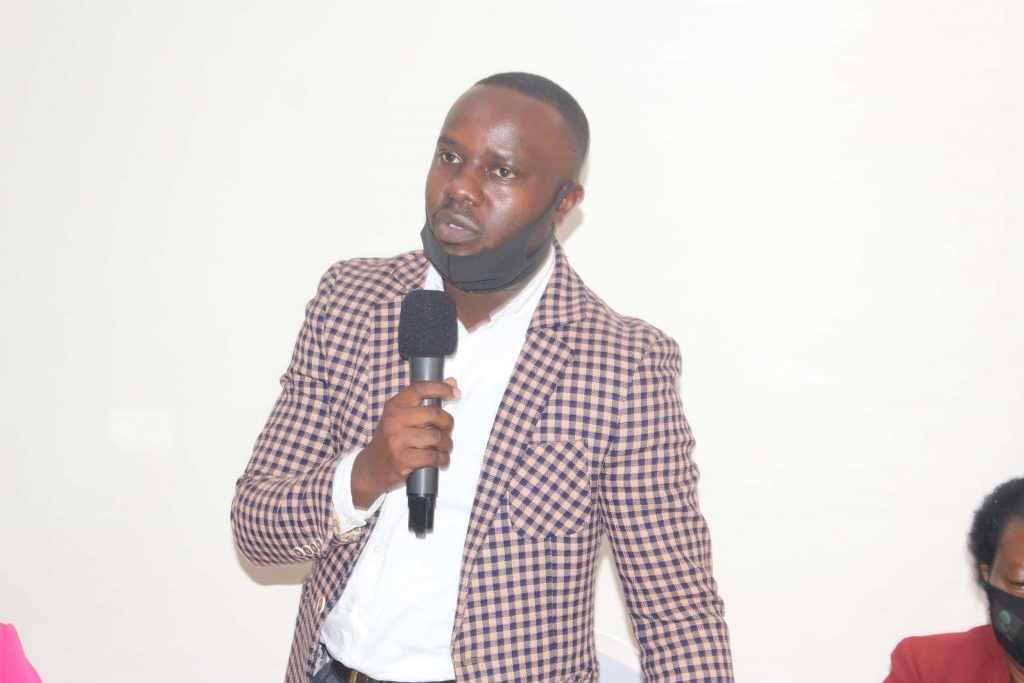
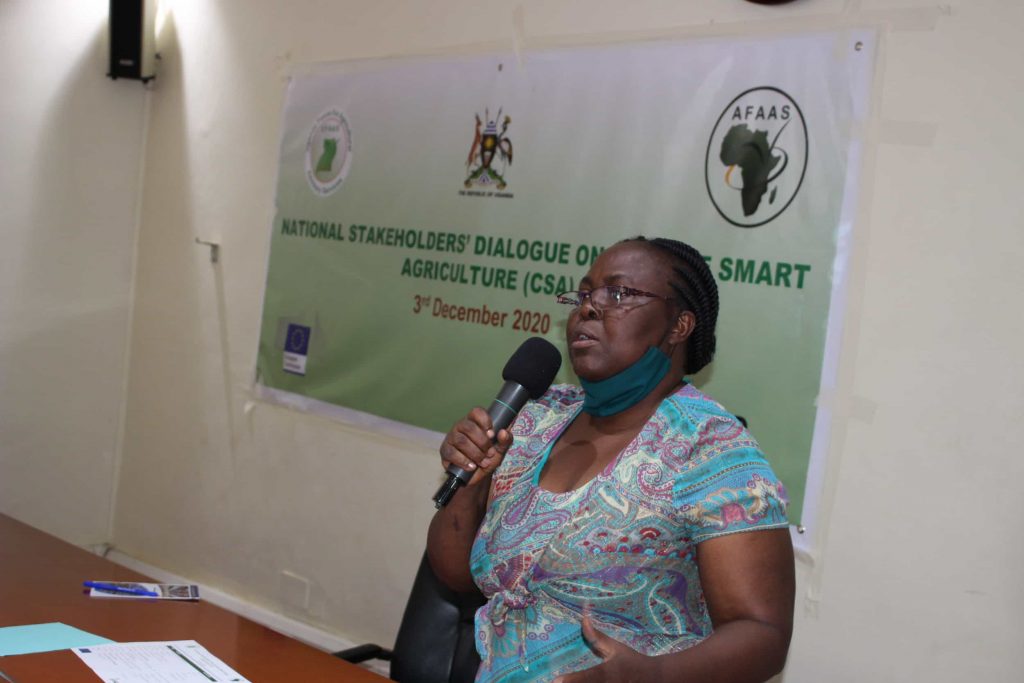
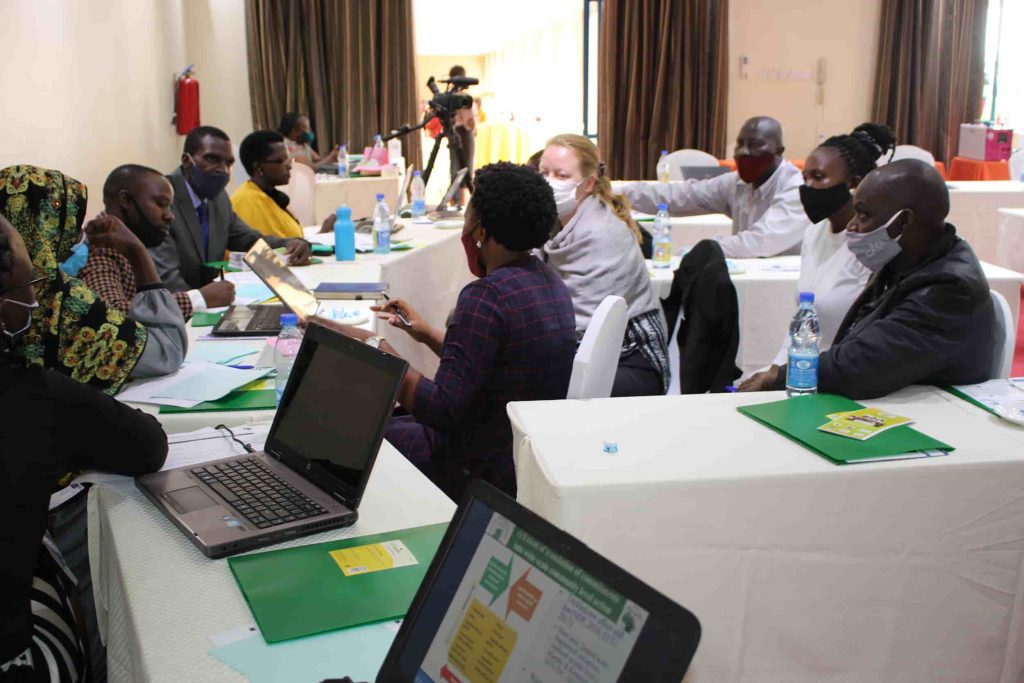
In her closing remarks, the CEO UFAAS commended the participants for an interactive dialogue, and informed them that similar dialogues at regional level hubs were planned to take place in the second week of December-Mbarara in Western Uganda, Lango in Northern Uganda, Soroti in the East, and Mukono in the Central parts of the Country. She encouraged all stakeholders to join UFAAS and the existing platforms for a concerted action for CSA.
Mr Mujuni, a data expert at the Uganda Meteorological Authority encouraged all individuals, especially the agricultural extension service providers to access the data from the authority and use it to guide farmers.
The event was officially closed by Ms Connie Acayo, the Assistant Commissioner for Information at the Ministry of Agriculture, Animal Industry and Fisheries, who urged each of the stakeholders to play their part to support climate Smart agriculture.
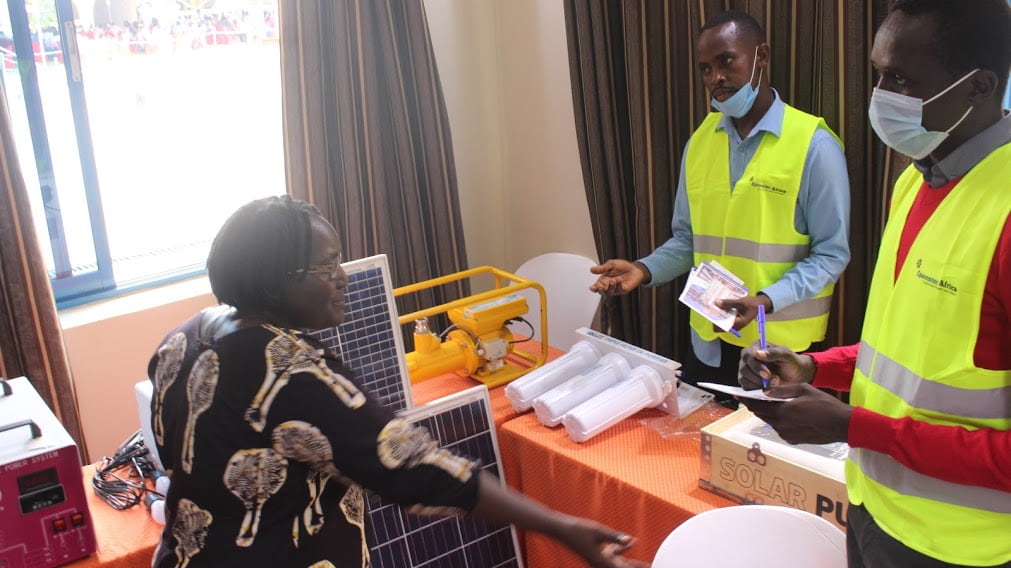
See more pictures from the event here
